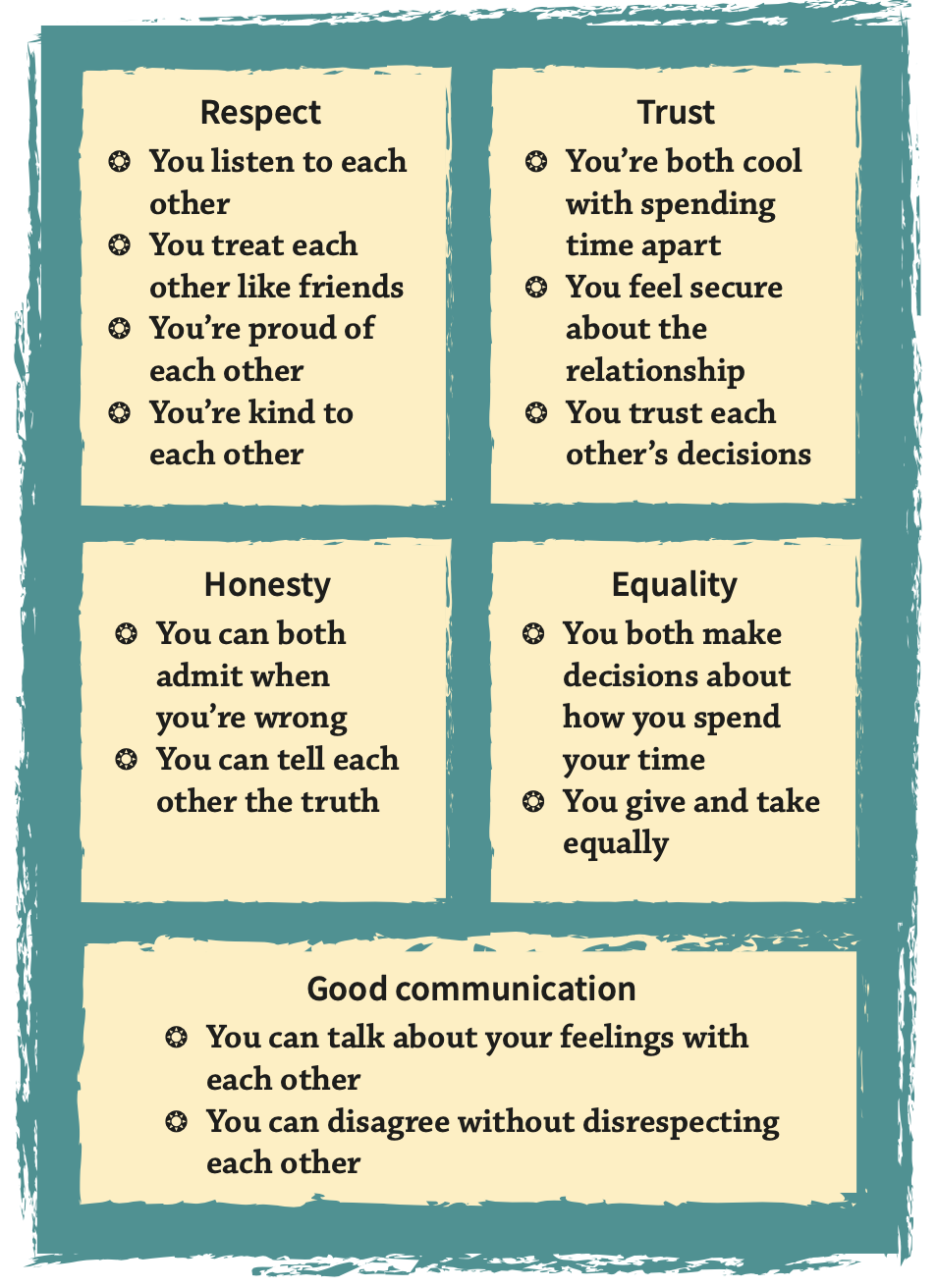
Sex and Relationships
Teens and sex. Let’s do some straight talking. Not “The Talk” because I’m assuming you already know the biology of sex. However, there’s a whole lot more than biology to discuss.
Many of you have had those conversations with friends, parents, in health classes, or in youth groups. You’ve asked and answered questions or just listened without saying a thing. But you’d be a rare teen – in fact, a rare person – if you didn’t have more questions or want more answers.
The plain truth: Sexual desire is a powerful energy in creation. Without sexual desire, our planet’s living creatures, including humans, would quickly die out. But sex is commonly used for a long list of other reasons – to satisfy physical desire, whether or not a couple cares for one another; to fix a tottering relationship; to control the other person; to satisfy curiosity; or to respond to peer pressure. Or because people think everyone else is doing it. (They’re not.)
Are these good reasons to have sex?
Do you wonder what a healthy relationship looks like?
What have your parents and culture taught you? What do spiritual or religious teachings have to say? What have you decided on your own?
People all around the planet have different values and social pressures regarding sex, abstinence, and activities like kissing and touching. You know your parents’ values, and that they need to be respected. No matter whether we are liberal or conservative on these issues, however, one value is healthy for everyone: To respect ourselves – our physical, emotional, and spiritual selves.
Focusing on this value, on respecting yourself, can help you figure out your choices. For example, think about the movies, websites, or TV shows you click on. The magazines you flip through. The conversations you have. We know that what we see, hear, and say has lingering effects. Choose the high road.
Riding along that high road will help if your ideal is to stay away from sexual activities altogether while you’re a teen. You can be close to someone you love without being sexual.
Closeness – intimacy – is also created by simple things like laughing together, singing to each other, looking the person in the eye and saying what you like about them. Asking fun questions. Enjoying shared interests, playing the same sports.
Of course, we all want relationships to be healthy. What does that really mean?
Simple answer. Healthy relationships make you feel good about yourself. They include these qualities:

If you’re not feeling good about your relationship, how do you know whether that feeling is just you being weird and insecure, or a real warning sign?
It’s a real warning sign. Trust your gut. Forget worrying about the weird and insecure part. You deserve to feel valued and respected, to have an honest relationship without any hint of violence or verbal abuse, to have “no” heard and respected.
Physical violence of any kind – hitting, choking, throwing things, grabbing you too hard, blocking the door when you try to leave – is completely unacceptable.
Verbal or emotional abuse is also unacceptable. Nobody gets to insult you, blame you for their anger, or make you feel like you don’t deserve love. They don’t get to control where you go or who you hang out with.
Hacking into your online accounts, controlling what you do on social media, stalking your profiles, pressure to use drugs or alcohol – don’t tolerate any of these.
If any of these things is going on, you need to get out of the situation. Walk away, even though doing so can be really hard, especially if you love the person who’s being abusive. Don’t let them talk you out of it. Advice from people who really know is: If they threaten to hurt you or themselves or someone else, tell an adult you trust right away. Your safety is the most important thing. Don’t be afraid to ask your parents and friends for help. If breaking up in person sounds scary or unsafe, it might be better to call, text, or email.
Afterwards, you might miss the person and feel guilty. That’s normal and okay. Keep reminding yourself why you left them in the first place.
You deserve better. It’s not your fault. You’re not alone.
Your parents may have very clear views which you respect, but others may be putting you under pressure – to drink, to take drugs, to have sex. When a relationship becomes sexual, it changes. You’re both more vulnerable, more attached, more easily hurt. Emotions can become a tangle. Often, expectations begin to develop – ones you may not have bargained for. Think! Are you ready for the complications that, consciously or unconsciously, come with having a sexual partner? If you’re not sure about any of these things, you can wait.
What feeds your inner self? What deepens your self-respect? What brings you long-term happiness? Think about who you want to be, where you want to focus your energy, what your goals are.
No need to rush and lots of reasons to wait. Sex will still be around when the time comes.